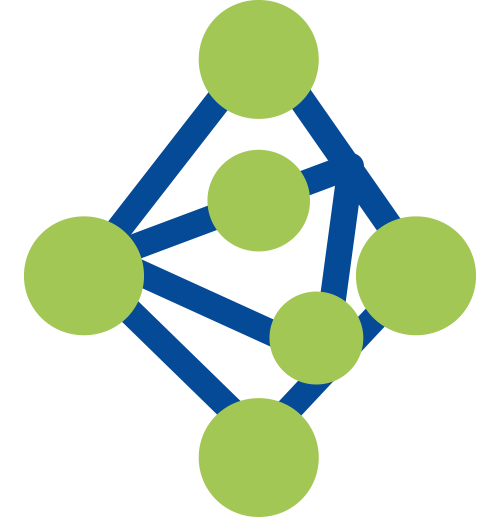In the ever-evolving realm of biotechnology, the concept of genetic variant libraries has emerged as a game-changer, revolutionizing our understanding of the intricate world of genetics. These meticulously curated collections of DNA sequences, each harboring intentional variations or mutations, have unlocked a treasure trove of possibilities for researchers and scientists alike. But what exactly are genetic variant libraries, and how do they contribute to our quest for unraveling the mysteries of life itself? Let's embark on a journey to explore the depths of this fascinating concept and uncover its profound impact on various fields of study.
At its core, a genetic variant library is a meticulously crafted repository of DNA sequences that have been intentionally modified or mutated. These variations can range from single nucleotide changes to more complex alterations, such as insertions, deletions, or even rearrangements of entire gene segments. The creation of these libraries is a deliberate process, often involving cutting-edge techniques like site-directed mutagenesis, error-prone PCR, or even the marvels of synthetic biology.
The true power of genetic variant libraries lies in their ability to facilitate the study of gene function, protein structure and activity, and the intricate relationships between genotype and phenotype. By introducing controlled variations into the genetic code, researchers can observe and analyze the resulting effects on cellular processes, protein interactions, and ultimately, the overall biological system. This invaluable insight has the potential to unlock groundbreaking discoveries and pave the way for innovative solutions in fields ranging from medicine to agriculture and beyond.
Creation of Genetic Variant Libraries
The creation of genetic variant libraries is a meticulous process that requires a deep understanding of molecular biology and cutting-edge techniques. While the specific methods may vary, the overarching goal is to introduce controlled variations into the genetic code, enabling researchers to explore the vast landscape of genetic diversity and its impact on biological systems.
Site-directed Mutagenesis
One of the most widely employed techniques for creating genetic variant libraries is site-directed mutagenesis. This approach allows researchers to introduce specific mutations at predetermined locations within a gene, providing a high degree of control and precision.
Site-directed mutagenesis is particularly valuable when studying the effects of known disease-causing mutations or exploring the potential for enhancing enzyme activity, substrate specificity, or protein stability. By precisely targeting and altering specific nucleotides, scientists can dissect the intricate relationships between genetic variations and their phenotypic consequences.
This technique is often used in conjunction with other methods, such as error-prone PCR or synthetic biology approaches, to create more diverse libraries or to fine-tune specific regions of interest.
Error-prone PCR
Another widely employed approach is error-prone PCR (Polymerase Chain Reaction). This method introduces random mutations throughout the target gene sequence, resulting in a diverse pool of variants with varying levels of genetic diversity.
By carefully controlling the mutation rate during the PCR process, researchers can fine-tune the level of diversity within the library, ensuring a desired range of genetic variations. This approach is particularly valuable when exploring uncharted territories or when there is limited information about the determinants of a protein's function.
Error-prone PCR allows researchers to uncover unexpected and potentially beneficial variations that may lead to novel functionalities or enhanced properties. It is often used as an initial step in directed evolution experiments, where subsequent rounds of screening and selection can isolate the most promising variants for further optimization.
Synthetic Biology Approaches
In recent years, the advent of synthetic biology has opened up new avenues for creating genetic variant libraries. Researchers can now design and synthesize entire gene sequences from scratch, incorporating desired mutations or variations with unprecedented precision.
Techniques such as gene synthesis and DNA printing enable researchers to construct libraries with precisely controlled variations, tailored to specific research objectives. This level of control and customization has the potential to accelerate discoveries and drive innovation across various fields, from biomanufacturing to therapeutic development.
Synthetic biology approaches allow for the exploration of novel genetic combinations that may not occur naturally, expanding the boundaries of what is possible in genetic engineering. By combining these techniques with computational tools and machine learning algorithms, researchers can design and optimize genetic variants with increased efficiency and accuracy.
Applications of Genetic Variant Libraries
The applications of genetic variant libraries are vast and far-reaching, spanning various fields of study and research endeavors. These powerful tools have revolutionized our understanding of biological systems and paved the way for groundbreaking discoveries and innovative solutions.
Protein Engineering and Optimization
One of the primary applications of genetic variant libraries is in the realm of protein engineering. By introducing mutations into genes encoding specific proteins, researchers can explore the impact of these variations on protein properties such as stability, catalytic activity, or binding affinity.
Through iterative cycles of mutagenesis and screening, scientists can identify and isolate protein variants with enhanced characteristics, paving the way for the development of more efficient enzymes, improved biocatalysts, or therapeutic proteins with optimized properties. This approach has significant implications in fields such as biomanufacturing, where optimized enzymes can improve process efficiency and yield, as well as in the development of novel therapeutics with improved efficacy and reduced side effects.
Drug Discovery and Therapeutic Target Identification
In the field of drug discovery, genetic variant libraries play a crucial role in identifying and characterizing potential therapeutic targets. By introducing mutations into genes associated with specific diseases or conditions, researchers can gain valuable insights into the underlying molecular mechanisms and develop more effective treatments.
By screening these libraries for variants that modulate disease-related pathways or alter protein-protein interactions, scientists can uncover novel drug targets or identify promising lead compounds for further development. This approach has the potential to accelerate the discovery of innovative therapies and personalized treatment strategies, ultimately improving patient outcomes and quality of life.
Evolutionary Studies and Adaptation Analysis
Genetic variant libraries are invaluable tools in the study of evolutionary processes. By mimicking the natural process of mutation and selection, researchers can observe and analyze how genetic variations influence traits and adaptations over multiple generations, shedding light on the intricate interplay between genotype and phenotype.
Through the analysis of these libraries, scientists can gain insights into the mechanisms driving evolution, the emergence of new traits, and the adaptive potential of organisms in response to changing environmental conditions. This knowledge can inform our understanding of biodiversity, species conservation, and the development of more resilient crops or livestock, contributing to the sustainable management of natural resources and food security.
Personalized Medicine and Gene Therapy
The advent of personalized medicine has brought genetic variant libraries to the forefront of medical research. By studying the genetic variations associated with specific diseases or conditions, researchers can develop targeted therapies tailored to an individual's unique genetic makeup.
In the field of cancer research, for example, genetic variant libraries have been instrumental in identifying mutations that contribute to the development and progression of various types of cancer. By understanding the molecular mechanisms underlying these mutations, researchers can develop targeted therapies that specifically target the aberrant pathways, minimizing side effects and improving treatment outcomes.
Additionally, genetic variant libraries have played a pivotal role in the development of gene therapies, where the goal is to introduce functional copies of genes into cells to correct genetic defects or treat inherited disorders. By generating libraries of gene variants, researchers can identify the most effective and stable versions of these therapeutic genes, increasing the chances of successful treatment.
Unlocking the Secrets of Gene Function
One of the most significant contributions of genetic variant libraries is their ability to elucidate the intricate relationships between gene sequences and their corresponding functions. By systematically introducing mutations and observing the resulting phenotypic changes, researchers can map the functional domains of genes and identify critical regions responsible for specific biological processes.
Mapping Functional Domains and Critical Regions
For example, in the study of enzymes, genetic variant libraries have been instrumental in understanding the catalytic mechanisms and substrate specificities of these crucial biomolecules. By generating libraries of enzyme variants, researchers can identify mutations that enhance or diminish enzymatic activity, providing valuable insights into the structure-function relationships of these proteins.
Furthermore, genetic variant libraries have shed light on the complex regulatory networks that govern gene expression. By introducing variations in promoter regions or other regulatory elements, researchers can unravel the intricate mechanisms that control when, where, and to what extent genes are expressed, contributing to our understanding of cellular processes and developmental pathways.
Understanding Catalytic Mechanisms and Substrate Specificities
By leveraging the power of genetic variant libraries, researchers can delve deeper into the intricate mechanisms that govern gene expression and regulation. By introducing controlled variations in promoter regions, enhancer sequences, or other regulatory elements, scientists can unravel the complex networks that dictate when, where, and to what extent genes are expressed.
This knowledge is invaluable in understanding cellular processes, developmental pathways, and the molecular basis of various diseases. Additionally, it opens up opportunities for optimizing the production of valuable biomolecules in industrial settings, such as biopharmaceuticals or enzymes for biomanufacturing.
Unraveling Gene Expression Regulatory Networks
These insights have far-reaching implications, from elucidating the molecular basis of diseases to optimizing the production of valuable biomolecules in industrial settings.
Accelerating Discoveries in Personalized Medicine
In the era of personalized medicine, genetic variant libraries have emerged as a powerful tool for identifying disease-associated mutations and unraveling their underlying mechanisms. By studying the genetic variations present in individuals with specific conditions, researchers can pinpoint the mutations that contribute to the development and progression of diseases.
Identifying Disease-Associated Mutations
This knowledge is crucial for developing targeted therapies and personalized treatment strategies. By understanding the molecular basis of a disease, scientists can design interventions that specifically target the aberrant pathways or mechanisms, minimizing side effects and improving treatment outcomes.
Developing Targeted Therapies
Building upon the insights gained from studying disease-associated mutations, genetic variant libraries play a pivotal role in the development of targeted therapies. By generating libraries of gene variants and screening for those that modulate disease-related pathways or alter protein-protein interactions, researchers can identify promising lead compounds or therapeutic candidates.
This approach has the potential to accelerate the discovery of innovative treatments for a wide range of diseases, from cancer to rare genetic disorders. By tailoring therapies to an individual's unique genetic makeup, personalized medicine offers the promise of more effective and precise interventions, ultimately improving patient outcomes and quality of life.
Advancing Gene Therapy Approaches
Genetic variant libraries have also made significant contributions to the field of gene therapy, where the goal is to introduce functional copies of genes into cells to correct genetic defects or treat inherited disorders. By generating libraries of gene variants, researchers can identify the most effective and stable versions of these therapeutic genes, increasing the chances of successful treatment.
Through rigorous screening and optimization processes, scientists can select gene variants that exhibit optimal expression levels, stability, and functionality within the target cells or tissues. This approach has the potential to overcome some of the challenges associated with gene therapy, such as immune responses or off-target effects, paving the way for more effective and safer treatments.
The Future of Genetic Variant Libraries
As the field of biotechnology continues to evolve, new techniques and technologies are emerging that promise to further enhance the power and versatility of genetic variant libraries.
Emerging Techniques and Technologies
One such development is the advent of high-throughput screening platforms, which enable researchers to rapidly screen and analyze vast numbers of genetic variants in parallel.
These platforms leverage advanced robotics, microfluidics, and high-content imaging techniques, allowing for the rapid identification of rare or highly specific variants with desired properties. This increased throughput and efficiency have the potential to accelerate the pace of discovery and drive innovation across various domains.
Another exciting development is the integration of machine learning and artificial intelligence into the design and analysis of genetic variant libraries. By leveraging the power of computational algorithms and vast datasets, researchers can predict the functional consequences of genetic variations with greater accuracy, streamlining the screening process and reducing the experimental burden.
Additionally, the field of synthetic biology continues to push the boundaries of what is possible in genetic engineering. Techniques such as gene synthesis and DNA printing are enabling researchers to construct libraries with unprecedented complexity and precision, opening up new avenues for exploring the vast landscape of genetic diversity.
Potential Breakthroughs and Impact Across Various Fields
The future of genetic variant libraries holds immense promise for breakthroughs and transformative impact across various fields. In the realm of medicine, these libraries could pave the way for the development of personalized therapies tailored to an individual's unique genetic makeup, revolutionizing the treatment of diseases and improving patient outcomes.
In agriculture, genetic variant libraries could play a crucial role in developing more resilient and high-yielding crop varieties, contributing to global food security and sustainability. Additionally, these libraries could aid in the development of more efficient biomanufacturing processes, enabling the production of valuable biomolecules, biofuels, and other bio-based products.
Furthermore, the insights gained from studying genetic variant libraries could shed light on fundamental biological processes, advancing our understanding of evolution, adaptation, and the intricate relationships between genotype and phenotype. This knowledge could have far-reaching implications for fields such as ecology, conservation biology, and even astrobiology.
Ethical Considerations and Responsible Use
As with any powerful technology, the use of genetic variant libraries must be accompanied by a strong ethical framework and a commitment to responsible practices. Concerns surrounding biosafety, biosecurity, and the potential for misuse or unintended consequences must be carefully addressed.
Biosafety Protocols: Rigorous biosafety protocols must be implemented to ensure the safe handling, storage, and disposal of genetic materials, minimizing the risk of accidental release or exposure. Strict guidelines and training programs should be in place for researchers and personnel working with genetic variant libraries, emphasizing the importance of containment measures and proper laboratory practices.
Biosecurity Measures: The potential for misuse or malicious intent with genetic variant libraries cannot be overlooked. Robust biosecurity measures, including access controls, material tracking, and monitoring systems, are crucial to prevent the unauthorized acquisition or misuse of these powerful tools. International collaborations and information-sharing mechanisms can help mitigate biosecurity risks and promote responsible research practices.
Regulatory Oversight: A comprehensive regulatory framework should be established to govern the creation, use, and distribution of genetic variant libraries. This framework should involve input from various stakeholders, including scientists, policymakers, ethicists, and representatives from the public. Clear guidelines and oversight mechanisms can help ensure that research activities are conducted ethically and in alignment with societal values.
Public Engagement and Transparency: Open dialogue and transparency are essential in addressing the ethical concerns surrounding genetic variant libraries. Engaging the public through educational initiatives, public forums, and open discussions can foster trust and understanding, while also providing opportunities for diverse perspectives to be heard and considered.
Equitable Access and Benefit-Sharing: As genetic variant libraries hold the potential for groundbreaking discoveries and innovative solutions, it is crucial to ensure equitable access to these technologies and the fair distribution of their benefits. Mechanisms should be in place to promote global collaboration, knowledge-sharing, and the responsible dissemination of research outcomes, particularly in areas where such advancements could have a significant impact on public health and well-being.
Respect for Human Dignity and Rights: In the context of personalized medicine and gene therapy applications, the use of genetic variant libraries must uphold the principles of human dignity, autonomy, and respect for individual rights. Informed consent processes, privacy safeguards, and ethical oversight mechanisms should be implemented to protect the rights and interests of research participants and patients.
By embracing a responsible and ethical approach, we can harness the transformative power of genetic variant libraries while mitigating potential risks and ensuring that the benefits of these technologies are accessible to all. Collaborative efforts between scientists, policymakers, ethicists, and the public are essential to navigate the complex ethical landscape and foster a future where scientific progress is balanced with ethical considerations and societal values.
Conclusion
In the years to come, the impact of genetic variant libraries will extend far beyond the realms of biotechnology and medicine. Their influence will ripple through various sectors, from agriculture and environmental conservation to biomanufacturing and energy production. As we continue to explore the vast potential of these libraries, we may uncover solutions to some of the most pressing challenges facing humanity, such as food security, climate change, and sustainable resource management.
Ultimately, the true power of genetic variant libraries lies in their ability to unlock the secrets of life itself. By decoding the intricate language of genetics, we can gain a deeper understanding of the fundamental processes that govern the natural world. This knowledge not only holds the promise of transformative applications but also offers a profound appreciation for the complexity and beauty of the living systems that surround us. As we embark on this journey of discovery, we must embrace a sense of wonder and humility, recognizing that the mysteries of nature are vast, and our quest for understanding is an ongoing and ever-evolving endeavor.
 NGSHybridization Capture DNA Probe QuarStar Human All Exon Probes 4.0 (Tumor) QuarStar Human All Exon Probes 4.0 (Standard) QuarStar Liquid Pan-Cancer Panel 3.0 QuarStar Pan-Cancer Lite Panel 3.0 QuarStar Pan-Cancer Fusion Panel 1.0 QuarStar Pan Cancer Panel 1.0 Hybridization Capture RNA Probe QuarXeq Human All Exon Probes 3.0 HRD panel Library Preparation DNA Library Preparation Kit Fragmentation Reagent mRNA Capture Kit rRNA Depletion Kit QuarPro Superfast T4 DNA Ligase Hybridization Capture QuarHyb Super DNA Reagent Kit QuarHyb DNA Plus 2 Reagent Kit QuarHyb DNA Reagent Kit Plus QuarHyb One Reagent Kit QuarHyb Super Reagent Kit Pro Dynegene Adapter Family Dynegene Blocker Family Multiplex PCR QuarMultiple BRCA Amplicon QuarMultiple PCR Capture Kit 2.0 PathoSeq 450 Pathogen Library Corollary Reagent Streptavidin magnetic beads Equipment and Software The iQuars50 NGS Prep System
NGSHybridization Capture DNA Probe QuarStar Human All Exon Probes 4.0 (Tumor) QuarStar Human All Exon Probes 4.0 (Standard) QuarStar Liquid Pan-Cancer Panel 3.0 QuarStar Pan-Cancer Lite Panel 3.0 QuarStar Pan-Cancer Fusion Panel 1.0 QuarStar Pan Cancer Panel 1.0 Hybridization Capture RNA Probe QuarXeq Human All Exon Probes 3.0 HRD panel Library Preparation DNA Library Preparation Kit Fragmentation Reagent mRNA Capture Kit rRNA Depletion Kit QuarPro Superfast T4 DNA Ligase Hybridization Capture QuarHyb Super DNA Reagent Kit QuarHyb DNA Plus 2 Reagent Kit QuarHyb DNA Reagent Kit Plus QuarHyb One Reagent Kit QuarHyb Super Reagent Kit Pro Dynegene Adapter Family Dynegene Blocker Family Multiplex PCR QuarMultiple BRCA Amplicon QuarMultiple PCR Capture Kit 2.0 PathoSeq 450 Pathogen Library Corollary Reagent Streptavidin magnetic beads Equipment and Software The iQuars50 NGS Prep System Primers and Probes
Primers and Probes RNA SynthesissgRNA miRNA siRNA
RNA SynthesissgRNA miRNA siRNA



 Gene Synthesis
Gene Synthesis Oligo Pools
Oligo Pools CRISPR sgRNA Library
CRISPR sgRNA Library Antibody Library
Antibody Library Variant Library
Variant Library


 Tel: 400-017-9077
Tel: 400-017-9077 Address: Floor 2, Building 5, No. 248 Guanghua Road, Minhang District, Shanghai
Address: Floor 2, Building 5, No. 248 Guanghua Road, Minhang District, Shanghai Email:
Email: Tel: 400-017-9077
Tel: 400-017-9077 Address: Floor 2, Building 5, No. 248 Guanghua Road, Minhang District, Shanghai
Address: Floor 2, Building 5, No. 248 Guanghua Road, Minhang District, Shanghai Email:
Email: 







